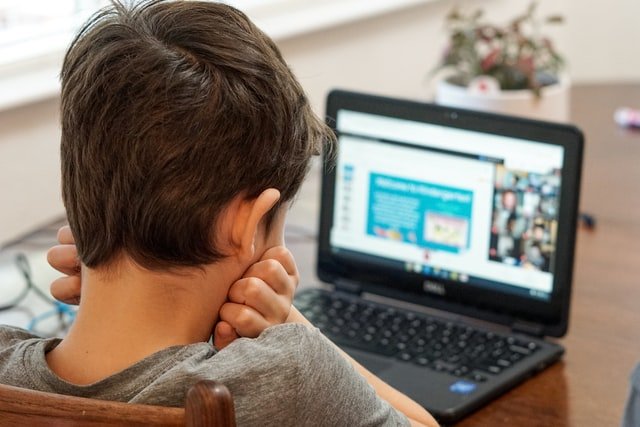 Photo by Javier Quesada on Unsplash
Photo by Javier Quesada on Unsplash
The year 2020 will be remembered as the year when social distancing has changed the landscape of education.
Any predictions we can make about the educational technology trends for 2021 must take this into account: the first few months of the year, at least, will be more of the same, but this time, with the added gift of experience.
Most people will agree that schools were unprepared for such a large-scale shift, and that while using technology to support learning can be a new and exciting opportunity, a forced switch without an adequate transition period was traumatic for everyone.
This time, however, teachers have learnt a few lessons of their own: blended learning is the keyword of EdTech trends and the mistakes made in 2020 will be something to build upon in 2021.
Making accessibility a priority
Making education accessible is a problem that has acquired even more nuances in the age of the coronavirus. Accessibility is not just about making accommodations for students with disabilities anymore: 2020 has made the significant gap between those who have easy access to technology and those who do not more apparent than ever.
As both schools and families do their best to equip themselves for another year of socially distanced learning, we can confidently predict that making online learning safer and not restricted to a lucky few will be at the top of every teacher and administrator’s to-do list.
Implementing new protocols to make socially distanced school easier and more secure, investing in better devices and Internet connectivity, emphasizing correct online behaviour for teachers and students both, using the newfound prevalence of learning delivered via technology as an opportunity to include the members of the class group who used to struggle with traditional methods of conveying knowledge: everyone, from students and their families to teaching and administration staff, can do their part to make 2021 a year of safe and truly accessible learning and learn from the mistakes and pitfalls of 2020.
As remote and blended learning become the new normal and new arrangements are made both at home and at school, disadvantaged students will have ample opportunity to catch up with their peers, whether that disadvantage consists of a learning disability that can be compensated with dedicated EdTech tools or connectivity issues that made taking part in online classes an ordeal.
New ways to learn
Many teachers have lamented that online learning makes it harder to assess their students’ engagement and understanding. With less supervision during tests and more difficulty taking body language cues from the class during lectures, it seems impossible to gauge whether or not genuine progress is happening.
However, helpful tools are not in short supply: from artificial intelligence assisting the grading process, to online learning platforms equipped with tools showing teachers which parts of the course are being skipped and which are generating more struggles, tech-savvy educators need not worry about the loss of their well-trained eye overseeing the class. Immediate feedback from quizzes can be a worthy substitute of a teacher’s ability to walk from student to student providing tips and corrections; keeping track of rising and falling grades is easier than ever; communication with students and families is just a click away and no longer restricted to traditional office hours. In short, there is no need to feel that socially distanced learning has placed a barrier between students and teachers: if anything, it can break barriers down.
Technology-driven learning also means a more varied use of media: if live conference calls do not work for you, videos and animations can be an effective way to convey information, and if social distancing has put a stop to your field trip, you can have a bigger and better one by transporting your class anywhere in the world and beyond with virtual and augmented reality.
The curriculum itself will be affected by the increasing reliance on technology: 2021, more than any other, will be the year of STEAM, because science, technology, engineering and mathematics will no doubt take centre stage when so much of the new generation’s education is being delivered via a computer, but we do need the arts to stay human despite everything.
Discover more EdTech with RobotLAB!



